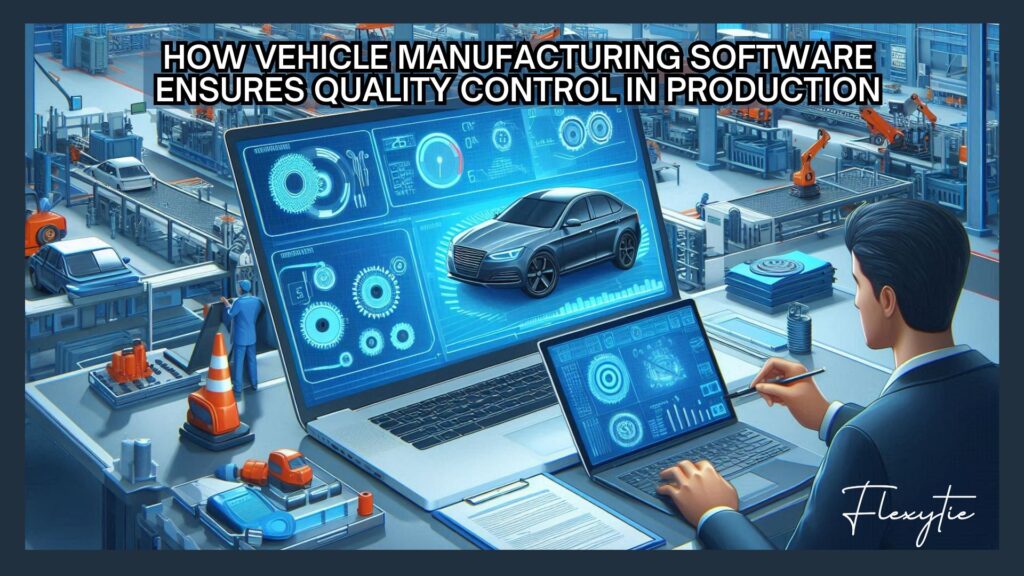Table of Contents Show
Quality control is infinitely complex in auto manufacturing—an intricate network of parts, people, and processes. Defects that evade detection can spiral into recalls, jeopardizing customer safety and brand repute. Thankfully, purpose-built manufacturing software transforms quality from reactive to proactive through data. Let’s look at how advanced solutions embed air-tight quality into production workflows.
Real-Time Monitoring and Alerts
The software enables continuous data capture from raw materials to final testing by blanketing the production line in sensors and IoT devices. The instant a process strays—say welding joint dimensions drift out of spec—alerts notify managers in real-time. This allows immediately investigating root causes and correcting course before vast volumes get impacted. This results in dramatic reductions in waste, rework, and risks, which helps save automakers time, cost, and reputation.
Data Analytics for Predictive Quality Control
Sophisticated manufacturing software looks beyond reactive firefighting to prevent defects proactively. By applying advanced analytics to real-time and historical data, machine learning algorithms forecast potential weaknesses before they surface. If supplier parts show higher failure rates or process variations exceed expected boundaries, the software flags it for intervention. Armed with these predictive insights, automakers can validate supplier processes, adjust in-house procedures, or swap component sources entirely to maintain quality. This data-driven approach keeps all metrics locked in, no surprises.
Streamlined Documentation and Traceability
End-to-end quality data is overwhelming without the right tools. Purpose-built software neatly consolidates it all. It:
- Automates sensor data capture along the line
- Digitizes manual inspection checklists
- Stores related documentation accessibly
- Allows tracing any part from order to installation
- Retrieves info instantly for audits
Such robust documentation does more than uphold standards—it shows compliance if questions arise. For instance, SAP systems offer detailed traceability profiles showing each component’s journey from tier-1 supplier through delivery. This accountability is essential for automakers and regulators alike.
Implementation Challenges and the Need for Expertise
Transitioning to modern quality management software is more marathon than sprint. Automakers aren’t just plugging in new tools; they’re transforming workflows, metrics, and more. Without thoughtful change management, the risks of downtime, cost overruns and subpar adoption run high. From integrating with existing networks to customizing for unique production environments, specialized expertise makes or breaks these initiatives. Working with experienced consultants paves the path for smoother rollouts, user adoption, and optimized configurations tailored to each automakers’ needs.
Final Thoughts
Yes, advanced software provides automakers immense opportunity to ingrain quality, predict risks, and simplify compliance. But extracting maximum value hinges on skillful implementation leveraging industry and subject matter expertise. With the right software and integration partner, manufacturers gain a partnering asset, not just another IT tool. As vehicle production continuously grows more complex, purpose-built quality management systems and the guidance to optimize them remain must-have investments for automakers.

